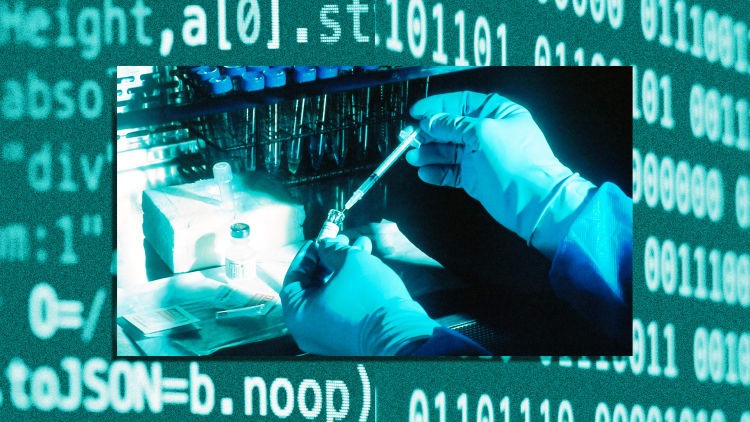- | 8:00 am
Advocacy and AI in cancer treatment
Artificial intelligence is helping to personalize medicine, and the testing needed may surprise you.

Cancer has touched almost all of us: our mothers, fathers, children, neighbors, and even ourselves. Cancer casts a long shadow over our lives.
BUT….what if a cancer diagnosis wasn’t so terrifying? What if it could be managed long-term? What if we had technology that made it possible for doctors to prescribe the right medication for the right person at the right time? What if I told you those things are a reality for some and could be a reality for everyone, everywhere, in the near future?
AI is helping in healthcare
Today, through no fault of their own, many clinicians are working partially in the dark, either without access to all of the relevant data needed to make personalized decisions for each patient, or without the technology necessary to efficiently analyze, interpret, and draw meaningful insights from the data they have available. But the testing to obtain extensive and comprehensive amounts of personalized data, and the technology to analyze that data in a timely fashion, does exist—and it’s within the deep learning capabilities of artificial intelligence.
While many patients currently still receive an effective “standard of care” (such as chemotherapy, radiation therapy, targeted therapy, or immunotherapy), for some, these treatments can be ineffective and unproductive, leading to months of negative side effects and financial burdens. As we learn more about cancer as a disease, researchers and clinicians can see that one cancer—such as lung cancer—can be broken down to multiple genomic mutations. These can drastically impact the therapy combinations used for treatment.
This is where AI can come into play. Over the last decade, AI has started to change the game in cancer diagnostics, treatment, and drug development when paired with sophisticated and advanced testing. AI can help effectively manage the complexities of available data to devise the best treatment plan. As we like to say, AI can help find the signal in the noise. The AI results make the healthcare community smarter and more prepared to tackle cancer for individuals.
How testing helps
When I talk about advanced testing, I am referring to genomic and biomarker testing via next-generation sequencing (NGS). As more people undergo this testing, more health data becomes available, allowing AI models to become smarter. The collective intelligence accumulated from analyzing hundreds of thousands of different profiles is enabling more accurate support at an individual patient level.
AI also has a strong ability to promptly analyze multimodal inputs (such as clinical history, radiomic data from medical imaging, and genomic data from NGS) to pinpoint the right datapoints to act on. This ability is the key to breaking health data silos. As more diverse patient information is gathered globally, researchers and clinicians are generating comprehensive, smarter insights from the AI, which helps create a clearer picture of each patient case. This, in turn, aids in perpetuating the use of personalized treatment planning and data-driven medicine.
All of this is incredibly helpful as the need for biomarker testing via NGS has increased exponentially in recent years. According to the American Cancer Society, nearly 60% of the oncology drugs launched in the last five years require biomarker testing prior to use. This means that those without access to this testing can’t receive more than half of the new cancer drugs. The result? A loved one may not get the best treatment to fight their cancer.
Knowledge is power
So, how do we get to the place where cancer is seen as a manageable disease, and AI is used to its full potential in cancer care?
The heart of the solution is awareness and advocacy. First, patients and their loved ones need to know that genetic testing can lead to better outcomes and it is available right now. Second, patients can and should work with their oncologists and medical team to determine which tests will provide the best insights. Patients should also connect with their health insurance teams to understand what testing is covered.
It is my hope that in the near future, all facilities will offer such testing, making it as routine as any other blood draw or biopsy. And with that, data-driven medicine will become the standard of care for patients facing cancer and rare diseases.
In the meantime, patients are still their own best advocates and owe it to themselves to be aware of these tests and ask the hard questions. Researchers will continue working to find a cure for cancer, and while they do that, companies like mine will continue working to make cancer a livable disease, giving hope to the millions of patients suffering globally.
Jurgi Camblong, PhD is the cofounder and CEO of SOPHiA GENETICS.







































